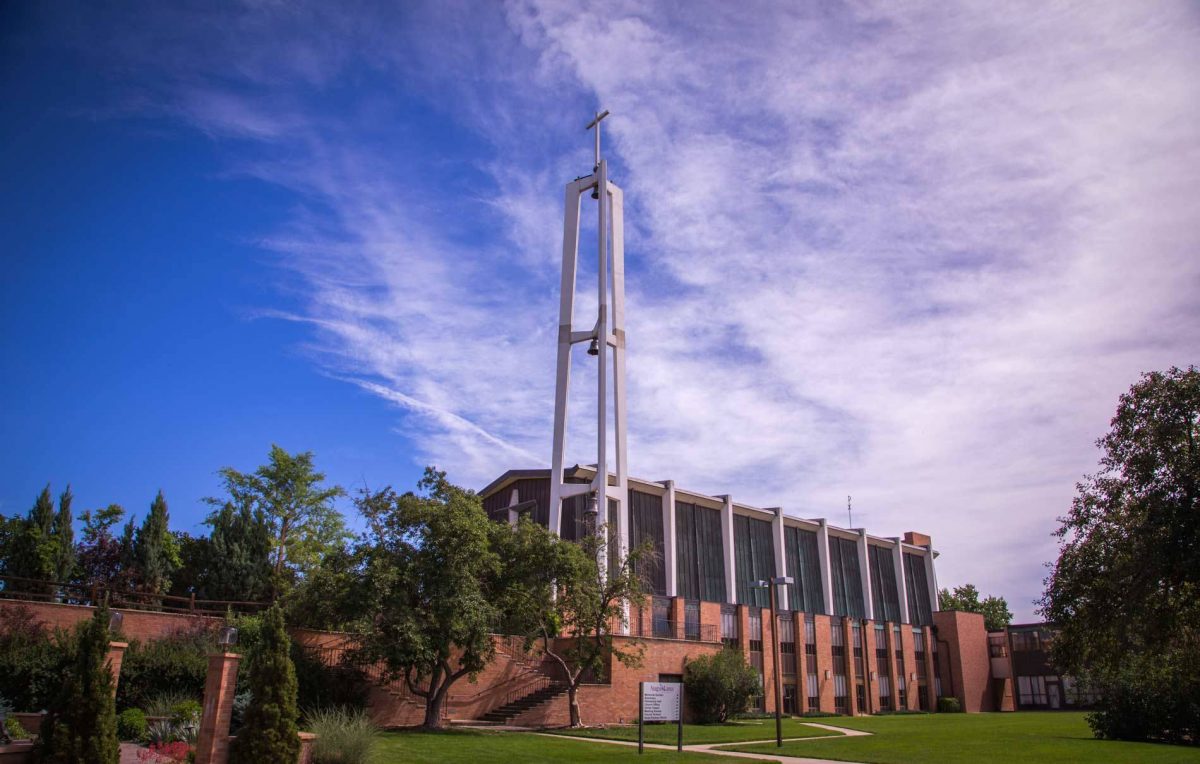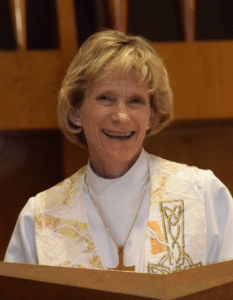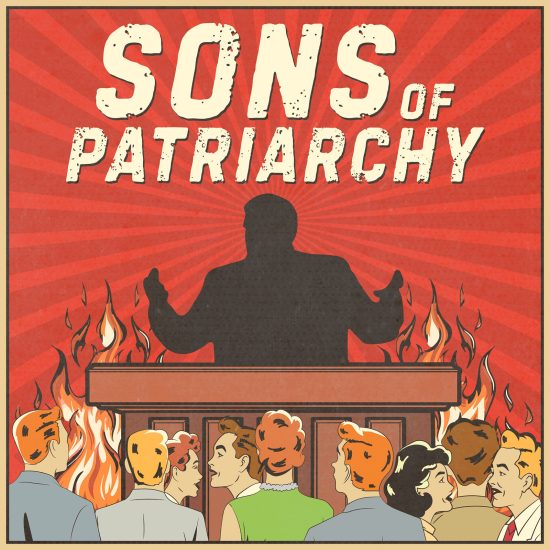
Pastors have broad job descriptions. They are preachers, teachers, counselors, administrators, organizers, and so much more. Many church members rarely interact with their pastors outside of Sunday morning worship, making it difficult to understand the dynamics of this role. “Behind the Pulpit” is a regular feature intended to pull back the curtain on the minister’s life and introduce our readers to how a diverse set of leaders go about shepherding their flocks.

Ann Hultquist
This installment features an interview conducted by email with Ann Hultquist, pastor of Augustana Lutheran Church in Denver, Colorado. Her responses have been lightly edited for clarity.
What didn’t you learn in seminary that you needed to know for church leadership?
After more than 30 years in ministry, I think that the foundation of seminary is just a beginning for pastors. The people I have served are the ones who have taught me what it means to be a parish pastor. They have allowed me to enter their lives in their most joyful and sorrowful times, which is a great privilege. In those moments, my theoretical seminary skills in pastoral care and leadership have been molded and shaped by entering into the depth of life with them. For me, it has been a journey of discovering how to bring the love and promises of Christ into people’s lived situations.
I’ve also learned about administration, budgeting, and management (vital skills they don’t teach well in seminary) from lay people and from colleagues. I’ve served in large congregations for most of my ministry and have really needed those abilities more than I ever thought I would.
What do you know as a pastor that you wish the typical layperson would better understand?
That God doesn’t keep a running score of how we perform in our lives. That God’s grace to us in Christ is really grace — a gift given without prerequisite. In that grace we are loved as we are and invited to trust Christ’s love and give that love away to others.
I have met so many people over the years — faithful worshipers, life-long Christians — who still believe that, somehow, they are not making “the cut” in God’s eyes. If we could take away that fear, I wonder if we might all have a closer relationship with Christ and a less judgmental attitude toward ourselves and others.
How has your personal understanding of God changed by serving the local church?
Like many pastors of my generation, my faith in God was shaped by youth group and summer camp experiences. I treasure that foundation, but I also know that serving as a pastor has helped me realize the complexities of faith. Walking with people through hurt, illness, and death; leading worship year after year in the midst of congregational joys and sorrows has helped me to see God in Christ as loving and gracious but also difficult to understand at times. Struggling with that reality has, I think, made me a more empathetic and authentic pastor.
How have your personal religious/devotional practices been shaped and altered by being the shepherd of a flock?
I have discovered that if I am not spending time in prayer and in scripture, I can’t lead, preach or teach. I start every day with a time of prayer and scripture reading, using The Daily Texts, which comes from the Moravian tradition. Each day there is a verse from the Hebrew Bible and one from the New Testament, as well as a plan to read through the Psalms in one year.
The readings cover a whole range of scripture and encourage me to think about the meaning of God’s word in my own faith as well as what I’m communicating to the congregation. It has also encouraged me to learn how to rely on prayer and God’s will rather than just what I want to have happen.
In addition, while I absolutely love Sunday worship, it’s very hard to just be a worshiper during that time because there are always so many details to remember and help make happen.
What does justice look like in your local context? How about love? How do you lead people towards both?
Like so many areas of the country, we’ve been challenged in Denver in terms of racial equality and justice, along with growing poverty and homelessness. Our congregation participates with social justice and advocacy organizations, as well as social ministries which provide food, clothing, and services to people.
Our sermons and educational opportunities have really focused on these issues over the last few years. This congregation has a long history of community involvement, so, for the most part, they don’t shy away from difficult conversations.
Love is why we involve ourselves with our neighbor and our community. Jesus’s invitation to love God and love neighbor has to be our beginning because otherwise the message can end up being all “shoulds” and guilt without a context. I think pastors have to help lead people to discover that Christ’s love pushes us to work for justice for all people.
What is the funniest or oddest thing that has ever happened to you in ministry (that you can share without breaking confidentiality)?
Children’s sermons are always a place where you never know exactly what will happen. One Christmas Day, I asked the kids, “What’s the best gift you gave this year?” A little boy’s hand shot up, and he loudly told me (and the whole congregation) “I gave my Dad underwear!”
If his father could have crawled under the pew at that point, he would have!
What has leadership through a pandemic required of you? How has your church experienced this public health crisis?
Where to begin? Everything changed. We had to pivot to first recorded, then livestreamed worship; all Bible studies and meetings moved to Zoom; we couldn’t visit people in person in care facilities or hospitals; funerals and baptisms were limited to just a few people.
Accompanying people was one reason I felt called to the ministry, and to not be able to be present with in-person was really difficult. So much change across the congregation’s life was exhausting to manage and exhausting for the people I serve.
What has been required is flexibility, calmness (at least outwardly!) and the ability to communicate hope in Christ’s promise to always be with us.
Our congregation lost so many people in 18 months (a couple of Covid-related deaths, but more age and other diseases) that we are a different community than we were in March 2020.
What gives you hope in the church today for what the church will be tomorrow?
I have hope because I see people of all ages, but particularly younger people, being innovative with what the church can do and how it can be relevant in a changing culture. I had the opportunity to serve for many years on our denomination’s board that approves people to serve as pastors and deacons. I found myself continually in awe of how the Spirit was calling committed young people into ministry. They are eager to serve and willing to try new things to invigorate congregations. They will lead the church in new ways that I can’t imagine.
I also see how the church has been pushed to be a force and a voice for social justice in our country. It always gives me hope when we as followers of Jesus are willing to be part of a difficult but necessary conversation like the ones we are having now regarding race and institutional injustice.






